The Albanian National Awakening, commonly known as the Albanian Renaissance or Albanian Revival, is a period throughout the 19th and 20th century of a cultural, political, and social movement in the Albanian history where the Albanian people gathered strength to establish an independent cultural and political life, as well as the country of Albania.
Albanian literature stretches back to the Middle Ages and comprises those literary texts and works written in Albanian. It may also refer to literature written by Albanians in Albania, Kosovo and the Albanian diaspora particularly in Italy. Albanian occupies an independent branch within the Indo-European family and does not have any other closely related language. The origin of Albanian is not entirely known, but it may be a successor of the ancient Illyrian language.

Idhomen Jovan Kosturi, also known as Idhomeno Kosturi, was an Albanian politician, regent and once acting Prime Minister of Albania. He would become the second representative of Albanian Orthodox population to become head of the Albanian government, after Pandeli Evangjeli. Kosturi was also among the contributors to the first Albanian teachers' school, the Shkolla Normale e Elbasanit, a teacher training institution that was founded on 1 December 1909 in Elbasan.
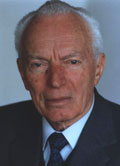
Mark Krasniqi was a Kosovar Albanian ethnographist, publicist, writer and translator who did most of his work while residing in Yugoslavia.

Pjetër Meshkalla High School is a private Roman Catholic secondary school located in Shkodra, Albania. Founded in 1877 by Jesuits from Sicily, the school is named for the Jesuit Peter Meshkalla, martyr of the Communist era. Shkodër Jesuit College was a Jesuit college in Shkodër, in northwestern Albania. The college has traditionally been an important centre of scholarly study into Albanian literature and language.

Llazar (Zai) Fundo was an Albanian Communist, later social-democratic journalist and writer. He was a former member of the Comintern and the Balkan Communist Federation. He was associated with the Fan S. Noli government in 1924 and became the leader of the Bashkimi organization after the death of Avni Rustemi in 1924. In 1928 he helped establish the Korçë Communist Group. In the fierce rivalry for power control within the Communist Party, he was branded a Trotskyist and purged from the party.

Vedat Kokona was an Albanian translator, writer and lexicologist of the 20th century, well known for his dual dictionaries English-Albanian and French-Albanian and his contributions in Albanian lexicology and lexicography.
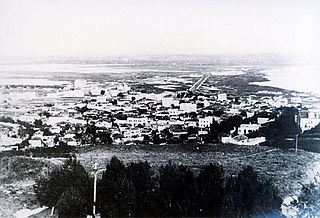
The Congress of Durrës was a conference of Albanian political leaders, held from December 25 to December 27, 1918, in Durrës, at the time capital of the Principality of Albania.
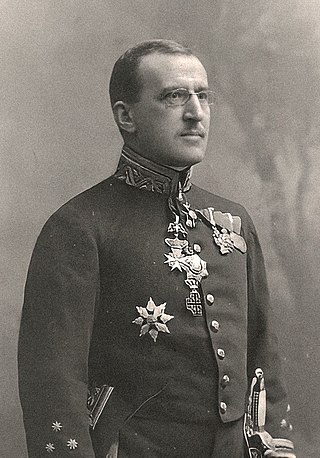
Theodor Anton Max Ippen was an Albanologist and diplomat from Austria-Hungary. Ippen belonged to the group of Albanologists who published their works on Albania through the state-financed institutes of Austria-Hungary in order to create the Albanian national consciousness which he believed would be beneficial for Dual Monarchy. Ippen supported the establishment of an independent nation-state of Albanians. He served as diplomat in Shkoder, Pljevlja, Istanbul, Jerusalem, Athens and London where he advised ambassador of Austria-Hungary during London Conference which ended with signing of the London treaty and a decision to establish the Principality of Albania reached on 29 July 1913. During the period between 1921 and 1927, he was a member of the International Danube Commission.
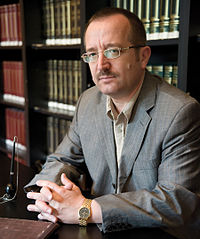
Aurel Plasari is an Albanian lecturer, scholar, writer, translator and professor.
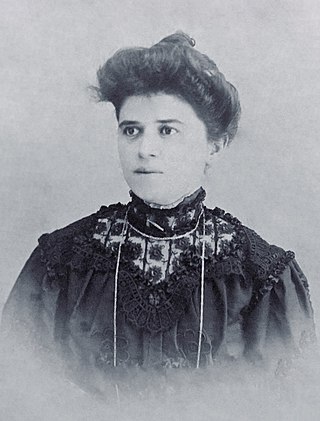
Sevasti Qiriazi-Dako was an Albanian patriot, educator, Protestant missionary, author, pioneer of Albanian female education, and activist of the Albanian National Awakening.

Skënder Petro Luarasi was an Albanian scholar, writer and anti-fascist activist.
The first Albanian-language school in Kosovo was opened in 1889. That was the birth of public education in the historical city Prizren. "The history of our education is a story of war of efforts. A story of a small number of people, with a great spiritual world, and with a strong will to be independent."

Ali Mema was an Albanian professional footballer who played as a midfielder. He played for 17 Nëntori Tirana for the majority of his career as well as the Albania national team, whom he earned 14 senior caps with.

Tajar Zavalani known later in his life as Thomas-Henry Zavalani was an Albanian historian, publicist, and writer.
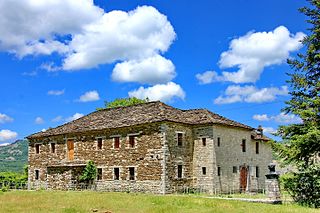
The village of Frashër in southern Albania saw the emergence of several notable families in the history of Albania. They contributed to the independence of Albania throughout military actions but also in literature and politics. The most notable of these families are the family to which belonged Naim Frashëri, national poet of Albania.

Faik Bey Konica was an important figure in Albanian language and culture in the early decades of the twentieth century. As the Albanian minister to Washington, D.C., his literary review Albania became the focal publication of Albanian writers living abroad. Faik Konica wrote little in the way of literature, but he was an influential stylist, critic, publicist and political figure in Albanian culture.
Musë Prelvukaj is a Kosovar artist born in Martinovići, near Gusinje and Plav in what is now Montenegro, on December 25, 1950.













